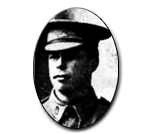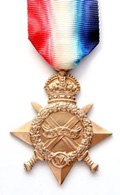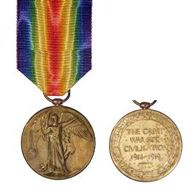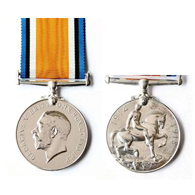ALLEN John Walter "Jack"
-

- 1502
- Private
- 25 Battalion
- 26th battalion
- Cooran
- Yes
- 8 February 1890
- Woollongabba, Brisbane
- 18 March 1915
- HMAT A60 Aeneas
- 29 June 1915
-
John Walter Allen "Jack" was born at Woolloongabba in Brisbane Queensland, he was the 4th son born to Joseph Francis and Elizabeth Eliza Allen (nee Beard). Both parents had died before John enlisted in the Army, Joseph in 1903 and Elizabeth in 1914. Prior to his enlistment at Maryborough on 18 March 1915 he had spent 3 years in Wide Bay Infantry Regiment and was working as a labourer in Maryborough and living in the family home at Richmond Lane. He had also worked as a labourer in 1913 at Whetstone (near Warwick) on the South West Line. His civilian life shows a court appearance and imprisonment for theft in 1912 and his war record sustains the idea that maybe his reason for joining up was not so much for national pride but as a means to stay out of further trouble, although his war record is not without considerabl personal sacrifice. John was 26 years old, 5ft 6 inches tall with black hair and hazel eyes, a single man and he wore a tattoo of a heart with arrows through it and two birds on his left forearm when he headed off to war. From searches made after his return to Australia it appears that he remained a bachelor and moved around Queensland up until his death in 1958. His war record starts when John was assigned as private with D company of the 25th battalion and stationed at the Alderley Camp in Brisbane. This is where he undertook route marches, musketry training and fitness drills culminating in a march with the battalion through Brisbane streets before leaving for the war. On 29th June 1915 he boarded the HMAT Aeneas (A60) which sailed from Brisbane with 976 other ranks on board. The ship headed to Sydney where the troops disembarked on 1st July 1915 to spend time in camp at the Agricultural grounds. July 7th the 25th Battalion again boarded the Aeneas and sailed via Fremantle to arrive in Suez on 2nd August 1915 where they made their way to Cairo for further training. The battalion stayed in camp at Abbasia until 3rd September when they boarded a train on route to Alexandria. Here they boarded the troop ship SS Minnewaska sailing at daylight for the port of Mudros on the island of Lemnos. In the very early hours of 11th September John, along with others, boarded the ship Sarnia heading for landfall at ANZAC with disembarkation planned for during the night. It was at Beauchops Hill during the heavy fire that surrounded their landing that John was wounded sustaining gunshot wounds to his left arm and shrapnel wounds to his right arm. He was evacuated to the hospital ship Gascon and later transferred to the Military Hospital in Malta. By the end of October 1915 he had been transferred to All Saints Hospital in Malta where he underwent treatment until declared fit for active service in December 1915. January 1916 John had rejoined the 25th battalion in Egypt only to be taken sick with Tonsillitis and Influenza in the February and subsequently admitted to Hospital. During this time he was fined 5/- and loss of 4 days pay for being drunk in the town of Valetta and breaking arrest. John spent the next months until April 1916 in various hospitals including No.1 Australian Services Hospital, No.3 Australian Hospital at Heliopolis, No.3 Australian General Hospital at Abbasia and 2nd Australian General Hospital at Tel-el-Kebir recovering from Influenza, pyrexia and rheumatism. John received orders to proceed to join the British Expeditionary Forces and disembarked in England. His time spent in England must have been difficult as he was absent without leave in July 1916 before being apprehended at Rollestone where he was given 3 days detention and forfeited 4 days pay. In August he was ordered to proceed overseas to France and marched out from Divisional Base to rejoin his battalion which at this time was in the thick of the fighting near Ypres. In November 1916 he was again ill with Tonsillitis, admitted to 9th General Hospital before moving to Rouen where he embarked aboard the ship "Western Australia" on route to 2nd Southern General Hospital from where he was transferred to 2nd Auxiliary Hospital at Portsmouth. John spent further time in custody awaiting trial during January 1917 for being absent without leave in Wareham. During this time he was admitted to Wareham Military Hospital with Bronchitis. After the trial he marched out to the Infantry Drafting Depot at Perham Down. He was deployed to France to rejoin the battalion which was in the final days of encampment at Baupaume before moving onto Miraumont then to Bavinchove. There was no rest throughout August and September while they were in the areas of Renescure, Steenvoorde, Westkoek and the Bellewarde Ridge. By 25th September 1917 the battalion was able to rest and refit in Winnipeg Camp. In October the battalion was on the front line at Ypres and John was wounded in action. There is no mention of the type of wounds sustained when he was initially treated by the 3rd Field Ambulance before moving through the casualty clearing station to 2nd Australian General Base Depot at Etaples. Later he was transferred to 14th Convalescent depot at Trouville where he committed the offences of being absent without leave and contrary to orders, giving a false name. While in the 2nd Australian General Base Depot, Havre he was arrested again for drunkenness and spent time in custody and forfeited pay. From September to December 1917 John was frequently in custody for the same offences. John was able to rejoin the 25th battalion from Havre in the November of 1917. It appears that at this stage of his war service that John was not able to cope with the demands of war or his physical wellbeing for he continued to be absent without leave, apprehended, sentenced and spent time in custody up until his return to the front line in May 1918. On 22 May 1918 the battalion was in the Rivery area of France and this is where John was wounded in action receiving gas burns following a gas attack. He was admitted to the line of communication hospital then onto St. Johns Hospital at Etaples before being invalided to England via the ship Elizabeth and into the war Hospital at Rednal. His war service from this point onwards consisted of a series of admissions to hospital sick, returning to the battalion in France, alternating with episodes of drunkenness, being absent without leave and spending the required time in custody. In October of 1918 his behaviour culminated in a Field Court Marshall for desertion and he was sentenced to 5 years, later mitigated to 3 years in Field Punishment compound. In January 1919 John had started his sentence at the No.11 Military Prison in France before being transferred under escort to H. M. Prison at Portland. On 28th April 1919 the sentence was suspended and on May 15, 1919 embarked on the H.T. Ypiringa for the voyage to Australia. John was discharged from service on 14th August 1919. On his return to civilian life he again became a labourer and worked in northern Queensland at OConnell Bridge, Lethebrook and Proserpine before heading south. In 1933 he was in the Ipswich area and was living in Albany Creek Road, Aspley at the time of his death in 1958.
Brothers who also served in WW1 - William 552, James George 601 Military Medal, Samuel 1713, Archibald 1757.
-
- Belgium
- Egypt
- Gallipoli
- Western Front
-

-

-

- Returned to Australia
- 15 May 1919
- 15 November 1958
- Brisbane, Queensland
- Lutwyche Cemetary, Brisbane. ANZAC, Portion 9, Section 3, Grave 65. UBD Map 139 R1
-
http://www.anzacday.org.au/history/ww1/anecdotes/hospitals.html
http://www.1914-1918.net/hospitals_uk.htm - Robyn Dahl
